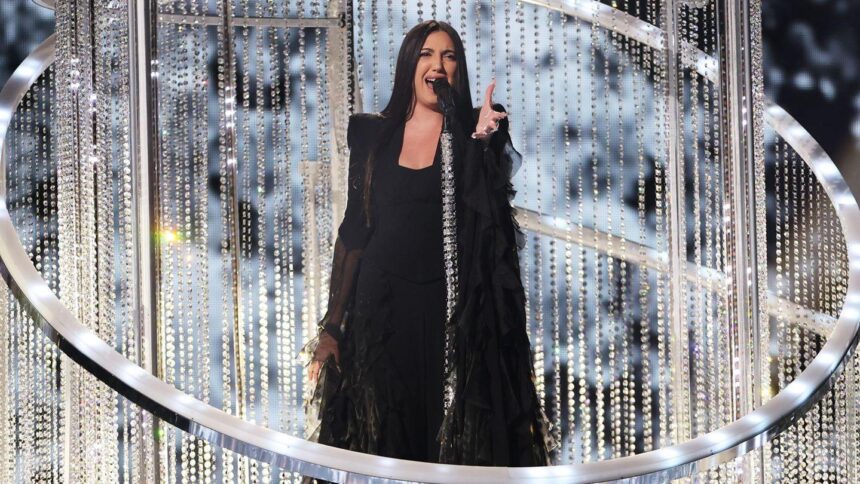Israel’s Role in Eurovision: Navigating the Intersection of Music and Middle Eastern Politics
Eurovision as a Stage for Political Controversy Amid Middle East Conflict
One year following widespread demonstrations triggered by Israel’s military operations in Gaza, the nation’s involvement in the Eurovision Song Contest continues to ignite passionate discussions. Originally celebrated as a festival promoting harmony and cultural exchange, Eurovision has increasingly become entangled in geopolitical disputes. Israel’s participation has reopened deep-seated divisions among audiences, performers, and activists throughout Europe and globally.This ongoing contention underscores how the Gaza conflict transcends military confrontations, permeating cultural and artistic platforms worldwide.
Renewed Tensions Surrounding Israel’s Eurovision Entry
Despite Eurovision’s foundational mission to foster unity through music, Israel’s presence in the contest has reignited debates about the Middle East conflict. Last year’s large-scale protests serve as a reminder that the event cannot be entirely insulated from political realities and human rights concerns. Critics contend that Eurovision risks becoming a vehicle for normalizing contentious political issues, while advocates argue for the importance of cultural representation and dialog as tools for understanding.
Factors fueling the ongoing debate include:
- The persistent humanitarian crisis in Gaza and its global implications.
- Calls from advocacy groups urging boycotts and artist withdrawals.
- Eurovision organizers’ efforts to uphold neutrality amid mounting pressures.
- Polarized public opinion spanning Europe and international audiences.
| Group | Stance | Recent Initiatives |
|---|---|---|
| Supporters of Israel | Champion artistic expression and inclusivity | Launched campaigns promoting cultural diversity |
| Pro-Palestinian Advocates | Demand boycotts and highlight conflict issues | Organized demonstrations and petition drives |
| Eurovision Committee | Maintain impartiality and promote unity | Released statements reaffirming neutrality |
Conflicting Views Among Artists and Activists on Political Expression
As the next Eurovision edition approaches, the divide between performers and political activists remains pronounced. Some artists advocate for Eurovision as a neutral platform dedicated solely to music and cultural exchange, free from political entanglements. Conversely, others argue that remaining silent amid ongoing conflicts—such as the recent Gaza crisis—amounts to complicity. This tension has surfaced through public declarations and protests demanding that the contest acknowledge humanitarian issues, illustrating the friction between artistic freedom and ethical responsibility.
The Eurovision community itself reflects this spectrum of opinions, with some contestants openly supporting Palestinian rights, while others emphasize the necessity of separating art from politics to preserve the contest’s original spirit.
- Artists favoring neutrality: Advocate for focusing on music without political messaging.
- Activists pressing for recognition: Call for explicit acknowledgment of humanitarian crises through performances or statements.
- Organizers balancing interests: Aim to sustain Eurovision’s reputation as a politically neutral event amid increasing pressures.
| Group | Primary Concern | Recent Actions |
|---|---|---|
| Neutral Artists | Protect artistic integrity | Declined to engage in political discourse |
| Activists | Raise awareness of Gaza’s humanitarian impact | Led protests and published open letters |
| Event Organizers | Preserve contest neutrality | Issued guidelines discouraging political statements |
Public Opinion Split: Boycotts Versus Cultural Engagement
The discourse surrounding Israel’s participation in Eurovision has reignited intense public debate. Some advocate for a cultural boycott in solidarity with Palestinians, emphasizing accountability and justice. Others promote continued engagement through music and arts as a pathway to dialogue and reconciliation. This divide is evident not only in political spheres but also within fan communities, where discussions mirror broader societal rifts. Proponents of boycotts argue that excluding Israel is necessary to challenge contested policies, while opponents warn that isolation may exacerbate tensions.
Both sides have mobilized social media campaigns and grassroots initiatives, leveraging Eurovision’s global platform to amplify their messages.
- Boycott Supporters: Demand justice and resist normalization without resolution.
- Dialogue Advocates: Emphasize cultural exchange as a tool for peace-building.
- Neutral Observers: Urge focus on Eurovision’s original mission to unite through music, avoiding politicization.
| Position | Core Message | Typical Methods |
|---|---|---|
| Cultural Boycott | Justice and Resistance | Protests, social media activism, petitions |
| Dialogue Promotion | Peace Through Art | Collaborative events, inclusive messaging |
| Neutral | Art Beyond Politics | Calls to depoliticize the contest, focus on music |
Strategies for Eurovision Organizers to Address Political Sensitivities
To preserve Eurovision’s ethos of unity while mitigating geopolitical tensions, organizers face the challenge of balancing diverse interests. Proactive dialogue with participating nations, especially those involved in conflicts, is essential to establish clear expectations regarding the event’s apolitical nature. Clear communication can reduce misunderstandings and limit external political pressures that threaten the contest’s neutrality.
Introducing complete guidelines that restrict political content and conduct can safeguard the competition’s integrity. Recommended measures include:
- Strict enforcement of rules prohibiting political demonstrations during live broadcasts.
- Careful review of performance content to prevent overt political messaging.
- Creation of an autonomous oversight committee to monitor compliance and address disputes promptly.
| Challenge | Suggested Solution |
|---|---|
| Political protests during performances | Conduct pre-contest workshops to clarify rules and expectations for participants |
| Backstage conflicts with delegations from contentious regions | Engage neutral mediators to facilitate dialogue and resolve disputes |
| Audience reactions intensifying rivalries | Utilize camera angles that emphasize performances over crowd reactions |
Conclusion: Eurovision’s Complex Role Amid Geopolitical Divides
As one of the globe’s most-watched cultural spectacles, Eurovision continues to reflect the intricate interplay between entertainment and politics. Israel’s ongoing participation remains a contentious issue, illustrating how geopolitical conflicts can infiltrate even artistic platforms. A year after the significant protests linked to the Gaza war, the contest mirrors unresolved tensions and divergent perspectives that extend well beyond the stage. The future of Israel’s involvement—and the international reactions it provokes—will likely continue to symbolize broader geopolitical challenges that resist easy resolution.










